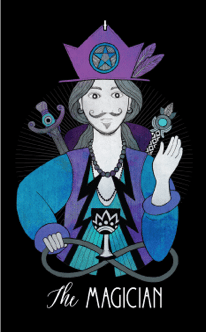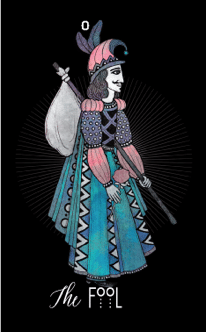
Words have meaning and names have power.
Author Unknown
In many cultures around the world, names have deep meanings. However, over the years many cultures lost the connection of the meanings somewhere along the way.
At the time of my spiritual emergence, I finally embraced my Greek “given name”, Ariadne. Not only did I want to shed the shame and pain that my childhood name created for me, but also I wanted to feel empowered to step forward into my destiny. Ariadne means, “Most Holy”, but a fact more poignant is that in Greek mythology Ariadne was the goddess of the labyrinth. As an archetype, Ariadne, represents the wisdom in womanhood and the thread she carries, knowledge and intelligence. If you are not familiar with the myth, Ariadne used her magical thread to help the solar hero Theseus traverse the labyrinth safely on his quest to slay the Minotaur, a half man/half bull creature housed at the center. Ariadne’s labyrinth represented the maze of the subconscious, the place where dreams are made out of the legacy of our souls and creative imagination. The archetype was brought to life in the 2010 movie Inception produced and written by Christopher Nolan. In it Ariadne, played by Ellen Page, is the Architect, hired by Dom Cobb (Leonardo DiCaprio) for the specific job of manufacturing a world of dreams. With her wisdom and knowledge, Ariadne helps Cobb psychologically to resolve his grief and guilt. With my namesake, Ariadne, ruling my subconscious, my destiny was to become a dream expert, helping dreamers to enter the labyrinth of their souls to unravel the meaning of their dreams and to explore the deeper aspects of their psychology. I have my mother to thank for seeing who I truly was to become.
Historically, names have served as a fingerprint of one’s identity. For centuries the early Romans had only one name, a given name or “praenomen.” Later, three names (tria nomina) were given. The “nomen” or middle name designated the gens or clan. The last name called “cognomen” designated the family. The practice of adding a fourth name, the “agnomen,” was to commemorate the individual for some accomplishment. When the Roman Empire declined, family names became confused and single names once again became custom.
During the Middle Ages, people were referred to by a single given name and gradually the custom of adding another name was a way to distinguish one from another. By the 12th century, the use of a second name had become widespread.
What’s in a Name?
Not only do the syllables of your name hold a resonance of sound that is powerful to the ear, but also your name has a meaning that defines you. While your surname remarks on heredity, your given name is the stamp of your personal identity. There is a treasure in your name and that treasure is its meaning.
The meaning of your name may mention innate attributes and qualities you are meant to draw out of your personality as well as offering clues to your nature and your destiny.1 Your name may describe you as “fertile field”, as with Sharon; “endowed with song”, as with Aaralyn; or declare you the “lion of God”, as with Ariel. Your name’s meaning reverberates who you are or are meant to be.
You might wonder what possessed your mother and father to choose the name they did. Unfortunately, many parents recycle names to honor someone else, like a grandfather or grandmother, rather than tuning in as my mother did to honor the child with the name of their soul.
English names have roots, origins and many versions.
- Germanic names characteristically convey warlike attributes with such meanings as “strength”, “brightness” and “glory”. The “-bert” a root element common to many Germanic names means “bright”. Examples are Albert and Robert.
- French names are usually variations of Germanic names. Some examples are: Robert, Charles, Henry, William and Albert. It is common in France to have two given names such as, Jeanne-Marie and Jean-Claude. Traditionally, the French are named after Roman calendar saints as with, Marie for Mary and Bernard for St. Bernard of Clairvaux.
- Slavic names are characteristically of a peaceful quality. The root meanings often convey traits like,” to protect”, “peace”, “to praise the gods”, and “to give”. Many of them, like Miroslav, consist of the word “slava”, meaning, “glory”.
- Celtic names, like Alan, Brian, and Brigid are anglicized versions of early Celtic forms. Christian saints dominate the list along with Celtic mythological figures such as Bran or Bron. The most common Celtic girl’s names are Lynn, Shannon and Eileen.
- Greek and Latin names many times are derived from the Greco-Roman gods or from early Christian traditions. Some examples are: Alexander, Andrew, Nicholas, Margaret, Chloe and Zoe.
- Biblical Names are Hebrew or Aramaic names taken from the Old and New Testaments and are extremely popular amongst those of Christian faith. To be named after a prominent biblical figure is to be honored with a God-given name. Examples are: Isaiah, Ophir, David, Ruth and Mary.
- Nature names usually derive from the elements of nature such as, the names of flowers, birds, colors or gemstones. Names like Violet, Rose, Jasmine, Daisy, Dawn, Crystal and Sparrow are all examples and denote special qualities and attributes. If you possess a nature name you may want to research the metaphysical attributes and properties that are associated with the particular element of nature to gain further insights into the power of your name.
- Trait names often remark on Christian virtues and principles and are normally used as feminine names such as, Faith, Hope, and Charity. It is believed that a girl possessing a trait name will embody that virtue throughout her life and grow to be an inspiration to others.
- Diminutives are sometimes used to distinguish between two or more members within a family. In English, Robert may be changed to “Robby” or “Bobby” and “Danny” is frequently used for Daniel.
- Shortened Names are generally nicknames of a common longer name, but they are instead designated as the given name of the person. For example, a person may simply be named “Bob” for Robert. Other examples are: Jen, Liz, Dan, Pete, Bill, and Steve.
- Feminine variations exist for many masculine names. Examples are: Alexandra, Marka, Josephine, Paula, Danelle, and Victoria.
How to Discover the Power and Meaning in Your Name
A simple search through a baby name database on the web will result in several meanings along with the origins for your given name. There are a host of sites that can help you with your search. One of the most popular is Meaning-of-Names.com. However, you may want to begin your research by asking your parents why they chose the name they did. They may have associated the name with someone famous, a fictional character, or a distant relative that you will want to thoroughly research.
Endnote
1. The most powerful name I have ever run across was Anastasia Angelica Anthrodapoulos, meaning: “resurrected angel of man”. Therefore, her initials were AAA.↩
Other Spirituality Articles by Ariadne Green
- The Characters in your Dreams
- Kindred Friends and Spiritual Alliances
- The Darker Areas of Your Soul
- Are You a Woman Warrior?
- Loving Compassionately with Boundaries
- Wish Fulfillment Dreams
- When a Little Anger Is Good
- Visiting Sacred Spots
- When Angels Walk on Earth
- The High Road to Happiness
- Developing Enlightened Spiritual Attitudes
- Alleviating Stress the Enlightened Way
- Finding Sacred Moments in Nature
- Natural Disaster Dreams
- Awaken to the Magic of Life
- A Child Can Be Your Guru
- Animal Powers in Dreams
- Critical Thinking as a Spiritual Practice
- The 5 Most Common Dreams
- Renewing Your Life After a Loved One’s Death
- The Metaphysical Qualities of Your Birthstone
- Dream Precepts: Unraveling the Meaning of Your Dreams
- Manifesting Your Dreams: Wishful Thinking or Not?
- Are Spirits Knocking on the Door of Your Dreams?
- Pregnancy Dreams: A Glimpse Into the Creative Process











